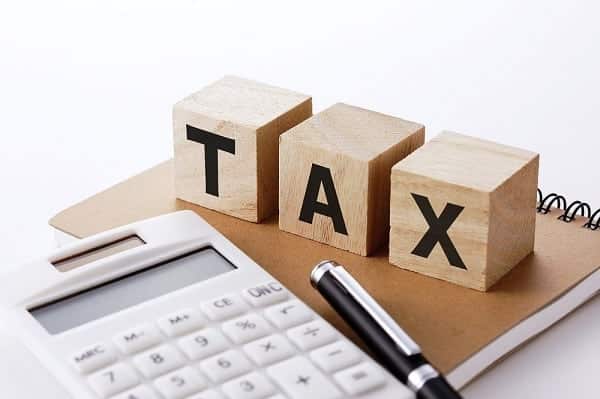Filling out your tax return can be a complex process, especially if you're new to Luxembourg.
To complete your tax return correctly, it's essential to understand the tax system of the country in which you live. That's whyou'll find here as comprehensive a guide as possible to the tax declaration and payment procedure in Luxembourg.
Who has to file an income tax return in Luxembourg?
In Luxembourg, individuals and companies are liable for a number of taxes, including income tax. They are therefore required to file an annual income tax return.
This declaration must be made no later than December 31 of the year following receipt of the income.
General principle of tax declaration and taxation in Luxembourg
Thanks to this tax return, the tax authorities have exact information on your financial situation and the amount of tax due in the end, based on your income from the previous year.
The tax authorities will make corrections by means of additional tax payments or tax refunds based on other sources of tax or tax deductions (e.g. insurance).
As a reminder, taxes in Luxembourg are levied at source, on the income paid out.
Income tax returns for Luxembourg residents
Residents are people who have their tax domicile in Luxembourg, in other words, their main residence.
What income should I declare in Luxembourg if I live in Luxembourg?
Residents of Luxembourg must declare all their income to the Luxembourg tax authorities, regardless of the source, including foreign income.
The Luxembourg tax authorities will calculate a worldwide tax rate based on all this income, including foreign income. This rate will then be applied to Luxembourg income only.
Double taxation in Luxembourg for Luxembourg residents
In certain cases, if a Luxembourg resident receives income in another country, he or she may be subject to double taxation. A bilateral treaty may also govern the conditions under which such double taxation applies.
In the event of a tax treaty between two countries, the worldwide tax rate will only apply to your Luxembourg income. If you receive income in different countries, check with the tax authorities of the countries concerned.
Taxation of non-resident persons on Luxembourg income
Non-residents of Luxembourg are taxable on their Luxembourg-source income only. If they meet certain criteria, non-residents can elect to be considered as residents for tax purposes, giving them access to all available deductions.
In the vast majority of cases, non-residents are treated in the same way as cross-border commuters. Like residents, cross-border commuters' taxes are deducted at source. At the end of the year, the non-resident taxpayer must file a tax return.
Understanding the Luxembourg income tax system
Luxembourg's progressive tax system
Like many countries, Luxembourg applies a progressive tax system to declared income. Tax rates increase with the level of income, whatever the source. According to the latest progressive tax scale, tax rates range from 0 to 42%.
In Luxembourg, income tax is applied in brackets to the amount of income declared. There is no tax on income below 11,265 euros. The maximum rate of 42% applies to income brackets of 200,005 euros and above.
The taxes paid by taxpayers are used to pay for the government's various public expenses in the areas of security, transport, health,...
Double taxation agreements in Luxembourg
Luxembourg has signed double taxation agreements (DTAs) with many countries around the world.
These treaties prevent individuals and companies receiving income from different countries from being taxed twice on the same income. In the case of tax treaties, individuals and companies benefit from tax relief, such as a credit for taxes paid in the other country.
In all cases, we recommend that you consult a tax expert, at least for your first tax returns. This will give you a better grasp of Luxembourg taxation and the measures applicable to your personal situation.
Luxembourg tax returns
Taxpayers are required to declare their income on an annual tax return. This tax return serves as the basis for calculating tax, based on the amount of income received in the previous year and the associated tax class.
When should you file your Luxembourg tax return?
Luxembourg follows the calendar year for calculating income tax, i.e. from January 1 to December 31. Failure to meet deadlines may result in penalties or interest.
Since the 2022 tax year, income for the year must be declared to the tax authorities by December 31 of the following year. This deadline also applies to corporate income tax, wealth tax and business tax.
Luxembourg tax returns on paper or online
Usually in February, each taxpayer receives a paper tax return by post, or an invitation to file electronically.
The taxpayer must then declare his or her income for the previous year to the tax authorities. The tax return can be made :
- in paper form on the appropriate form(s) sent by the administration
- online instead of paper declarations, for greater convenience.
How do I declare my income online in Luxembourg?
Declaring your taxes electronically couldn't be easier. Log on to guichet.lu, select your status(resident or non-resident), then follow the instructions.
Guichet.lu, the Luxembourg government's administrative guide, has also posted a step-by-step tutorial to help you complete your tax return. Guichet.lu also has a very practical video to help you through the whole process of filing your taxes online.
What do I have to declare on my Luxembourg tax return?
In his tax return for the previous year, the taxpayer must declare all his income.
All declared income and expenses must be supported by official documents. The various organizations with which you are in contact (employers, various funds, insurance companies, service providers) will provide you with the necessary declaratory documents in due course. Don't hesitate to contact your service providers again if you don't have these documents.
Income to be declared in Luxembourg
There are 8 categories of taxable income for individuals:
- salaried income
- income from self-employment, including directors' fees
- income from commercial activities
- income from agriculture or forestry
- isus investment income
- property and rental income
- income from retirement pensions, alimony, etc.
- miscellaneous income.
Expenses to be deducted on your Luxembourg tax return
For each of these categories, the taxpayer can deduct certain expenses to arrive at a net income.
The taxpayer also benefits from deductions and tax credits, in particular :
- employment-related expenses: individuals can deduct certain expenses, such as work-related travel costs, from their taxable income.
- childcare expenses or alimony paid in the event of divorce
- pension contributions
- charitable donations
- ...
Taxable income is calculated by adding together all these sums, income and expenses. Tax will be calculated by bracket on this taxable income.
Find out more about the tax system and personal income tax.
Paying income tax in Luxembourg
Luxembourg taxation by tax class
In Luxembourg, there are three classes of tax based on different criteria:
- marital status (single, married, divorced, widowed....),
- parental status (dependent children or not),
- resident/non-resident status
- age 64.
These tax classes are rated 2, 1a and 1. Class 2 is the most advantageous.
Tax class 2 applies to married couples or those in a civil partnership. Divorced or widowed people can also benefit from this class during a transitional period. They will then be taxed in class 1 or 1a. More details on the tax authorities' website.
Depending on your situation, you belong to one or other tax class. The withholding tax form issued by the tax authorities determines your tax class. The tax class defines the tax calculation method based on the taxpayer's total income.
Tax assessment and payment in Luxembourg
Once your taxes have been calculated, the tax authorities will send you your tax notice. You'll then know how much you owe to the tax authorities, or how much you'll be reimbursed. You will be asked to pay the amounts due as soon as possible.
The tax due will be deducted directly from your bank account.
Silver partner





